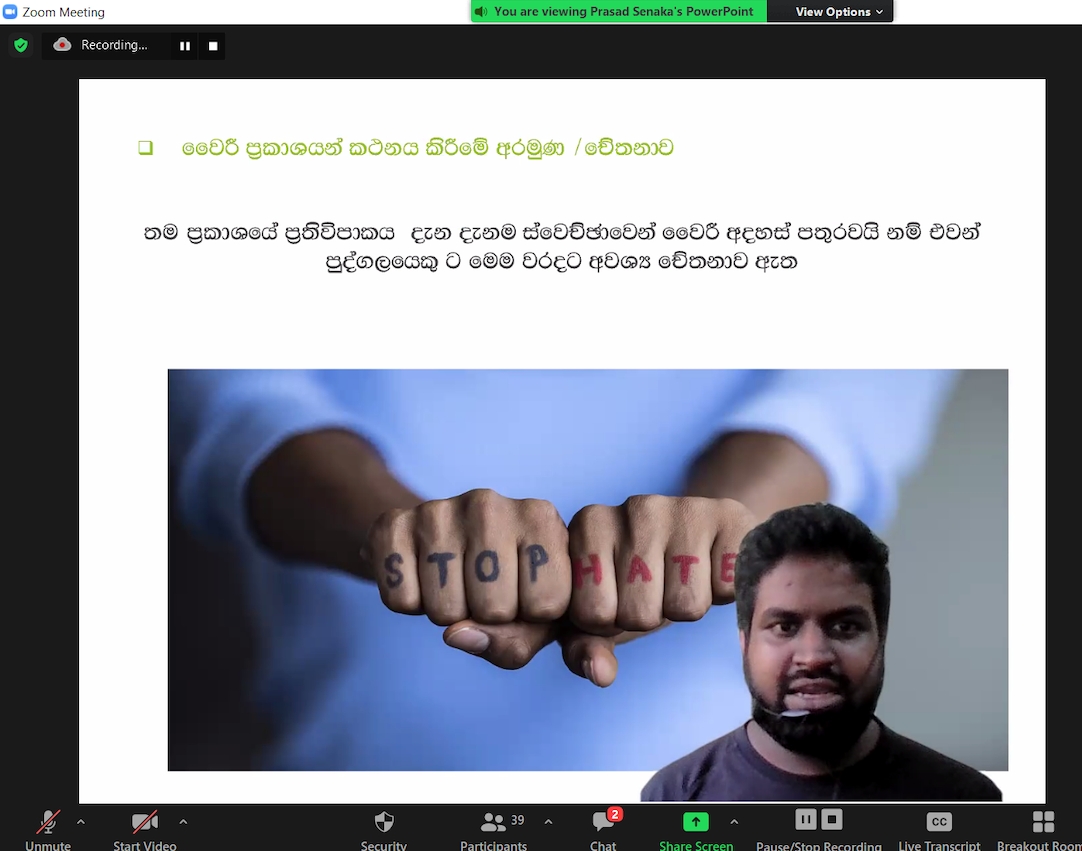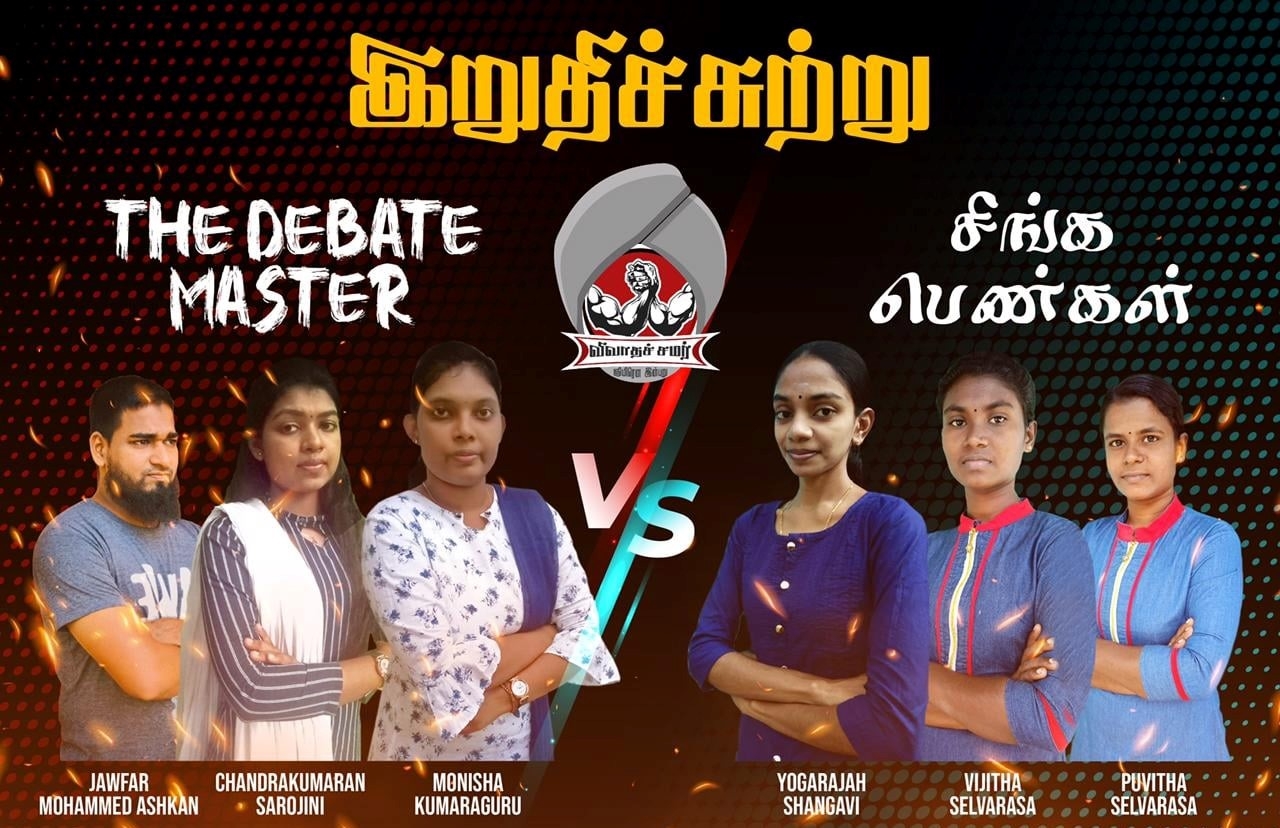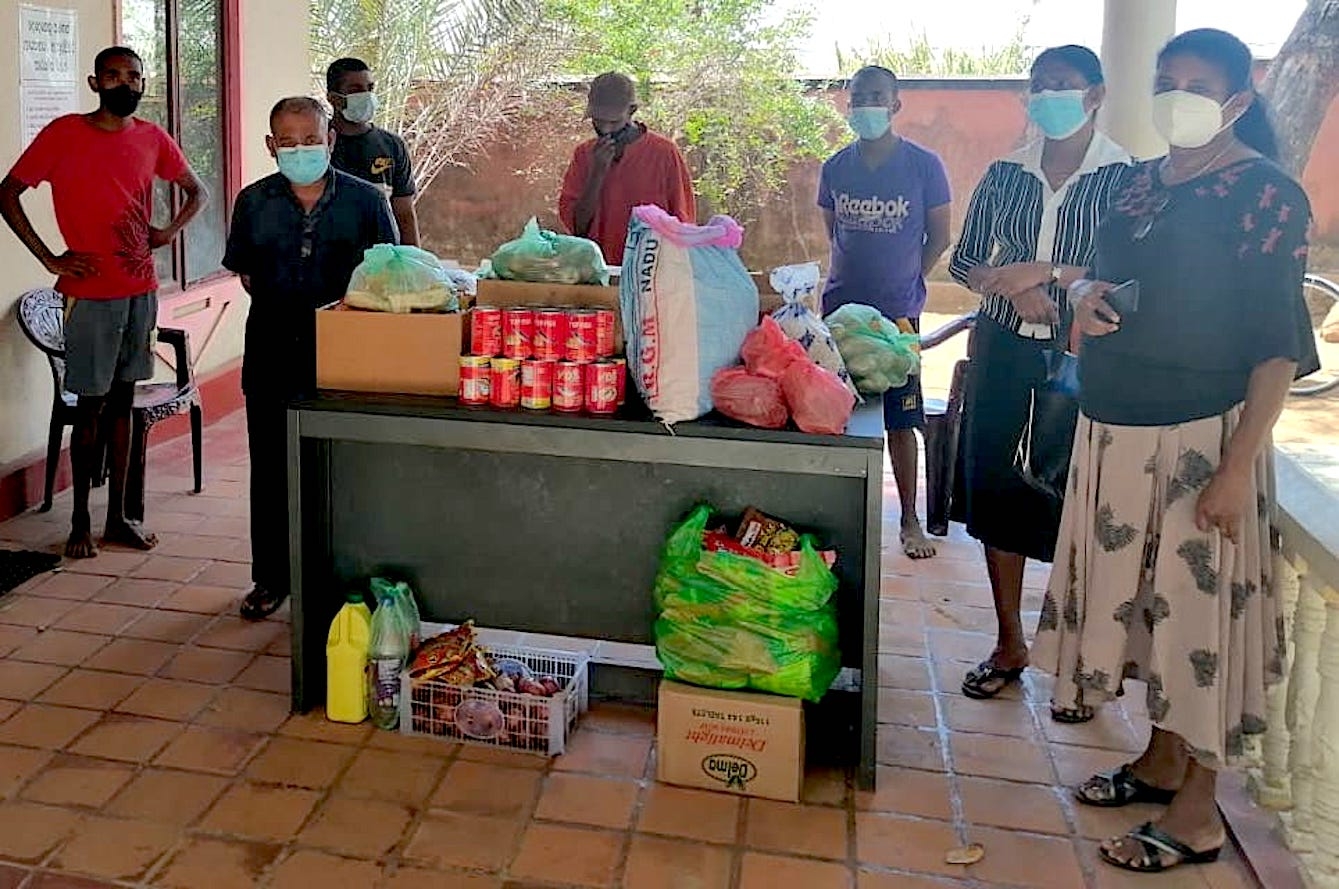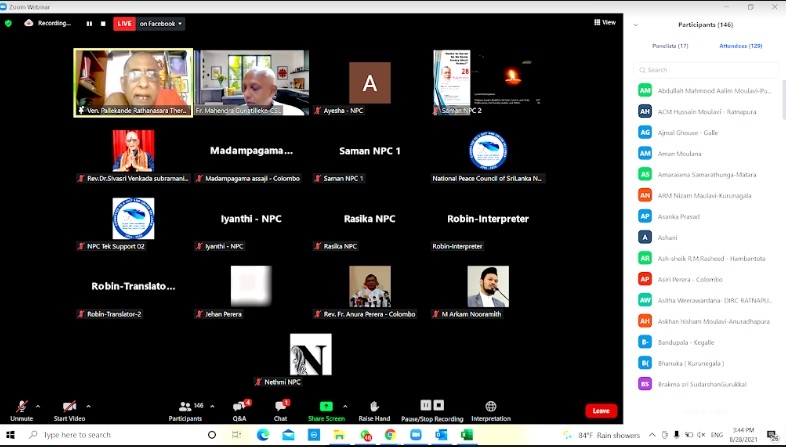Under the project Technical Assistance to Justice Institutions in Sri Lanka funded by Legal Action Worldwide (LAW), eight training programmes on prevention of hate speech were conducted for government officers, religious leaders and local government authorities in Monaragala, Polonnaruwa, Badulla, Kandy, Kurunegala and Kegalle. The resource persons were master trainers who have been trained by NPC.
News
Matara, Galle and Colombo District Inter Religious Committees (DIRCs) organized activities to commemorate World Children’s Day and Elders’ Day via zoom under NPC’s Plural Action for Conflict Transformation (PACT) project.
To address the need for non-discriminatory customer service, NPC’s Social Cohesion and Reconciliation (SCORE) Activity conducted a training programme to enable government officers and local government authority representatives to provide better service delivery.
NPC’s Collective Engagement for Religious Freedom (CERF) project conducted three webinars to increase awareness of the Community Policing Service to strengthen the civil society and police collaboration to resolve local issues. One webinar was conducted for 115 Local Inter Religious Committee (LIRC) members in Trincomalee, Kuliyapitiya, Paduwasnuwara and Rakwana and two other webinars were conducted for 170 Community Police officers in Trincomalee and Batticaloa, facilitated by SSP Priyankara De Silva, former Director of Community Police Service.
To celebrate International Day of Peace, NPC’s Plural Action for Conflict Transformation (PACT) project organized a webinar on the theme of recovering better for an equitable and sustainable world for 400 participants including religious leaders, youth, community leaders and civil society activists.
NPC’s Collective Engagement for Religious Freedom (CERF) project conducted three webinars to increase awareness of the Community Policing Service to strengthen the civil society and police collaboration to resolve local issues. One webinar was conducted for 115 Local Inter Religious Committee (LIRC) members in Trincomalee, Kuliyapitiya, Paduwasnuwara and Rakwana and two other webinars were conducted for 170 Community Police officers in Trincomalee and Batticaloa, facilitated by SSP Priyankara De Silva, former Director of Community Police Service.
Training sessions for Civil Society Organizations (CSOs) on preventing violent extremist were held under NPC’s project Prevention of Violent Extremism (PVE) conducted with Helvetas Sri Lanka and funded by the European Union.
Under NPC’s Technical Assistance to Justice Institutions in Sri Lanka project, 14 training programmes on the prevention of hate speech were conducted by master trainers for government officers, journalists, religious leaders and local government authorities in Matara, Monaragala, Polonnaruwa, Badulla, Kandy, Ratnapura, Kalutara, Kurunegala, Anuradhapura and Kegalle.
Young people are often seen as passive beneficiaries rather than active leaders. Around the world, countless young people are eager to shape their communities but governance structures, poverty and a lack of education and employment can muffle their voices. To strengthen youth leadership in building pluralistic values in the post war context, NPC has provided youth with a platform to demonstrate leadership skills and create a positive impact within in their communities under its project, Creative Youth Engagement for Pluralism (C-YEP).
Several care homes and institutions affected by travel restrictions received food and equipment through NPC’s Covid-19 relief programme funded by the German embassy. Members of the 17 District Inter Religious Committees (DIRCs) with the support of government officers selected institutions that were facing many shortages while trying to look after their residents.
With the approach of the September session of the UN Human Rights Council in Geneva, there has been an increase in interest on the part of the government in obtaining the views of civil society in regard to human rights issues. A delegation of civil society members, many of them drawn from NPC and functioning as a loose grouping going by the name of the Sri Lankan Collective for Consensus met with a number of government leaders, including former Foreign Minister Dinesh Gunawardena, Justice Minister Ali Sabry, Sports Minister Namal Rajapaksa, President Gotabaya Rajapaksa and Finance Minister Basil Rajapaksa. The group also met with former Speaker Karu Jayasuriya and Opposition Leader Sajith Premadasa.
NPC’s Collective Engagement for Religious Freedom (CERF) project conducted two virtual religious dialogues to foster the roles and responsibilities of the religious leaders to build up religious coexistence with the participation of 100 Sinhala and Tamil speaking religious leaders representing 12 Local Inter Religious Committees (LIRCs).
Social media has both negative and positive impacts. The misuse of social media can lead to conflicts in society but it also plays a role in addressing difficult issues. Under its Collective Engagement for Religious Freedom (CERF) project, NPC organized a webinar to enhance the skills and knowledge of youth to adopt social media platforms to establish religious coexistence.
A seminar on child rights and prevention of child abuse was organised by NPC under its projectPlural Action for Conflict Transformation (PACT) to increase awareness among stakeholders in the estate sector and to draft a resolution demanding authorities to take action to strengthen the law, mechanisms and institutions to protect child rights.
NPC’s Creative Youth Engagement for Pluralism (C-YEP) project is working with university students to raise their awareness and influence the public discourse on pluralism and inter community relations in order to strengthen the reconciliation process. To accelerate the conversions about pluralism through short videos and short films, NPC conducted a series of training on video making for university students.
National Peace Council’s Technical Assistance to Justice Institutions in Sri Lanka project conducted a series of campaigns on countering hate speech. The Monaragala district campaign was conducted in three phases: creating a dialogue against hate speech and violence with government officials, youth, differently abled persons and religious leaders; educating people in the plantation sector on countering hate speech and a discussion on the contribution of art and literature to minimise hate speech.








